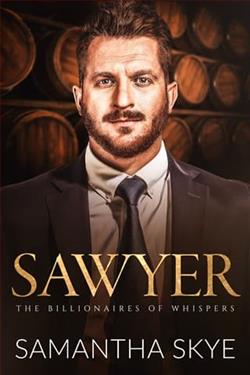Page 27 of Paranoia
Silbas planted his right elbow and grasped Hernandez’s hand around her thumb.
Hernandez said quickly, “Ready, go.” She slammed his hand against the flimsy tabletop. The sound echoed through the apartment. Silbas grunted and pulled his hand away, shaking it in the air like he had touched something hot.
He said, “That ain’t nice.”
Hernandez said, “Neither was choking your wife.”
“I already went to prison for that.”
“But what happened to her while you were in prison?”
Silbas didn’t reply.
Hernandez stood up from the table and marched out of the apartment without another word.
CHAPTER 41
KEVIN DOYLE WATCHED the two detectives leave José Silbas’s apartment building. He stayed put in his stolen Honda. Doyle had an eye for detail, and the detail he noticed was that neither of the cops looked too excited. They’d probably just been in there asking Silbas some routine questions.
Still, Doyle wasn’t sure he wanted to act right away. Then he saw Silbas pop his head out the front door of the apartment building and look around as if checking to see if anyone was hanging around, looking for him. He’d never spot Doyle in the car, way down the street.
Ten minutes later, Silbas stepped out onto the sidewalk dressed in what looked like a company uniform, blue khakis and a beige jacket, and stood next to the street. A Toyota Camry stopped in front of him. Doyle saw the Uber emblem on the windshield.
Doyle decided to follow. He was curious to see what hadgotten Silbas out of his apartment before his evening shift at the shipping company where he worked. Doyle had thought about doing something at Silbas’s job. But maybe he’d get a better opportunity now, since he wasn’t sure how many people would be around the business later.
The Uber headed west toward the Hudson River. Doyle stayed back a block or so as he followed the car. He didn’t know the streets well enough to do the surveillance on a parallel street. That was the right way to conduct a surveillance like this.
The Uber let Silbas out next to the Hudson about a mile south of Columbia University. The Hudson River Greenway had a few different walking trails, but no one was around. Somehow Doyle managed to find an open spot to park his stolen Honda. Then he got out and followed on foot as Silbas continued to walk toward the south along the river. He walked nearly half a mile. He was trying to hide his tracks as well. He didn’t want any kind of record to show exactly where he was going. Was he planning to kill someone? Silbas paused several times along the river to check all around him. It was pretty good counter-surveillance. Then he stopped near where an older man in an overcoat sat on a bench among several others along the river, next to a statue. There were a few more people around here. But not many, and they soon moved along.
Doyle hung back while Silbas spoke to the older man.
He waited, trying not to seem obvious as he looked out over the river, occasionally glancing over his shoulder at the two men. Doyle could feel the weight of his heavy, sharp carpet tool secured inside his jacket. He also had his Beretta 9mm shoved in his belt holster. There was no such thing as being too prepared.
Doyle eased closer. The current dreary weather kept mostpeople out of open spaces like this. Plus the breeze off the water could be brutal.
Silbas raised his voice. The two men seemed to be arguing. Even at a distance, Doyle caught some of the conversation. “It’s not right,” Silbas repeated several times. He was seriously pissed off about something having to do with someone named Jimmy.
The older man told him to “cool down.” He said something about looking into it. Doyle couldn’t catch it all. Then it was over. The older man stood, then turned and started to stride away quickly. Silbas stayed looking out over the water, closer now to the railing above the seawall.
Doyle made a split-second decision. He started walking toward the benches, pretending to be interested in the historical plaque mounted below the statue. It didn’t really matter. Silbas wasn’t paying any attention to his surroundings. Maybe he’d been out of the business too long to stay alert all the time.
Doyle moved quietly between two benches to stand directly behind Silbas. He already had the carpet tool in his hand. He used his left hand to grab Silbas across the mouth and his right to reach around and shove the razor-sharp tool deep into Silbas’s chest. He felt the man’s entire body stiffen as the spike plunged through and then skipped off a rib. It was just like a job he’d done in Berlin. He knew it was going to take more than one stab with the weapon. He just started moving his arm like a piston. He struck three, four, then five times. He paused for a moment, then thrust the tool into Silbas three more times for good measure.
Silbas’s beige jacket showed a pattern of spreading blood. Doyle was amazed the man was still standing. Silbas wheezed a couple of times, then his knees started to give out. Doyle gave him a shove over the railing and let him tumble into the river. Hebarely made a sound. He must’ve sunk immediately. When Doyle looked over the railing, there was nothing but dark, choppy water.
Doyle gave a quick glance around the area. No one was nearby. No one could’ve seen anything. And there was no trace of Silbas anywhere.
Doyle quickly stalked away, back toward his stolen car. About five hundred yards north of where Silbas had gone into the water, Doyle tossed the carpet tool into the river as well.
For the first time today, Kevin Doyle smiled.
CHAPTER 42
MY MEETING WITH Assistant Medical Examiner Aurora Jones this morning had left me contemplating the apparent suicide of Roger Dzoriack. I’d studied philosophy when I attended Manhattan College. That included several classes on logic. I often joked that the only thing logic classes did for me was keep me out of discussions of politics. Logic and politics do not mix well. But in police work, logic often comes in handy. And logic dictated that if Roger Dzoriack’s suicide was actually a murder, then the other suicides I’d been investigating might also be murders.
That meant I needed to make a trip to Florida and take a closer look into the deaths of Ralph Stein and Gary Halverson. I had the reports, but although it was clear that their deaths were considered suicides, I’d never really considered the use ofpropane tanks as a method of suicide. After I did a little research, however, I discovered that wasn’t as suspicious as it had originally seemed to me—apparently propane explosions had been used several times in suicides. There had even been another case in Palm Beach County, just north of where the two retired NYPD detectives had lived in Hollywood Beach, Florida. Maybe that’s where they’d gotten the idea.
It would seem a simple matter to fly from New York City to Fort Lauderdale, Florida, on one of the dozens of flights from LaGuardia every day. That wasn’t my holdup. It was the unending bureaucracy of the NYPD. I couldn’t approve my own travel even though I was the acting supervisor of my squad.















